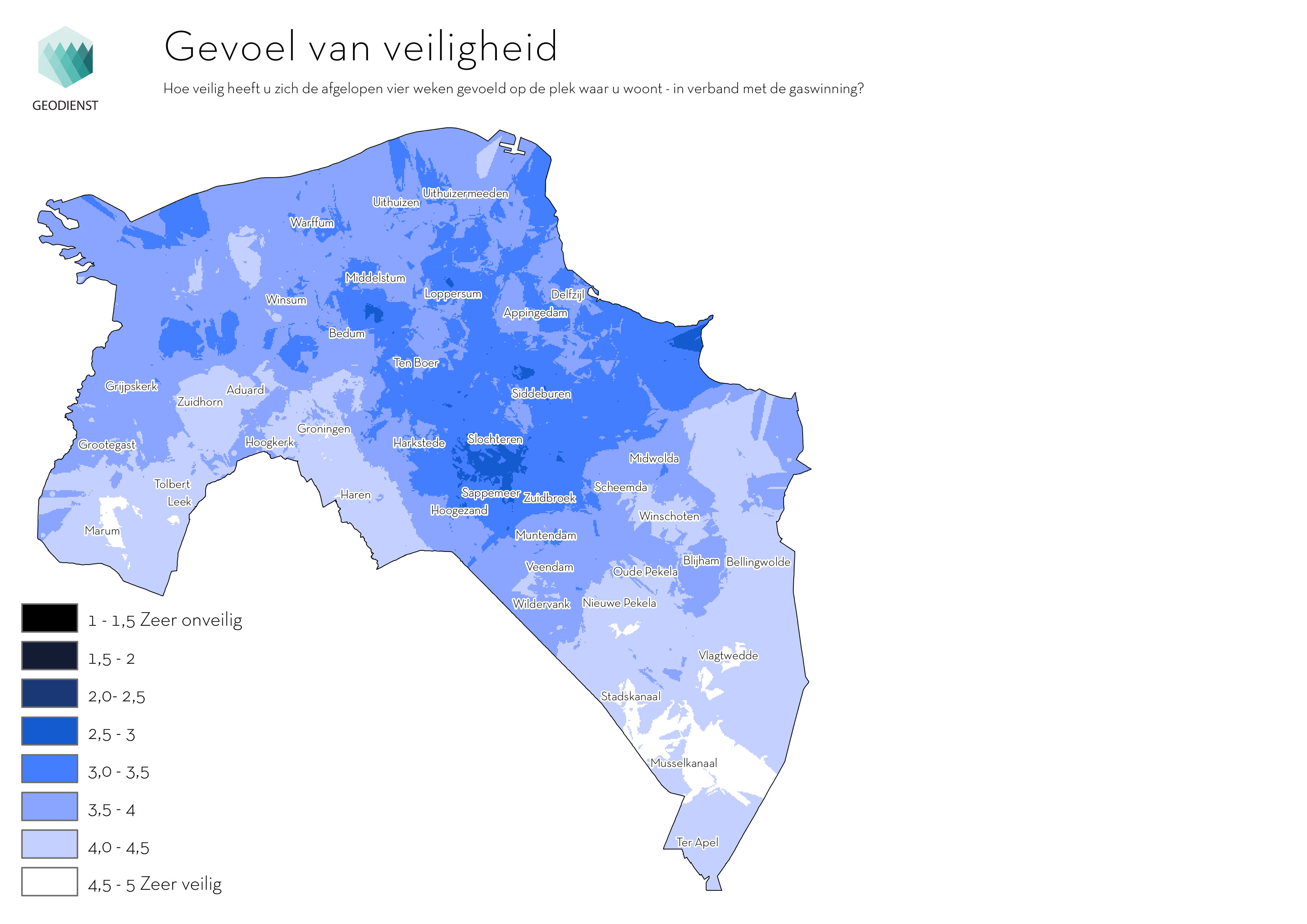Health problems more common among inhabitants of Groningen with recurrent earthquake damage

People from Groningen are particularly proud of, and content with, the place where they live, whether in or outside an earthquake zone. The actual drilling for gas does not affect public health, but specific health problems are more common among people who suffer recurrent damage as a result of earthquakes. These are the three main conclusions from the first questionnaire carried out for Gronings Perspectief (Groningen Perspective), a research project commissioned by the National Coordinator Groningen.
People from Groningen who have suffered just one bout of damage have as many (or as few) health problems as people who have not experienced the effects of an earthquake. People who have suffered damage on more than one occasion, however, are more likely to experience insomnia, irritability, disturbed concentration and specific physical symptoms. Prof. Tom Postmes and Dr Katherine Stroebe, who are heading the research, recommend introducing several tracks to help improve the health and resilience of the affected members of the population.
The inhabitants of Groningen are proud of, and content with, the place where they live. The beautiful natural environment, the tranquillity and the high standard of living combine to make people feel at home in Groningen and engaged with the local community. In addition, people refer to the good amenities and cultural heritage as valuable elements. The level of contentment is as high inside the gas drilling zone as outside.
Drilling for gas does seem to affect people’s opinion of their general health status, whether in or outside the drilling zone.
However, people from Groningen who have suffered damage from earthquakes on more than one occasion report more specific health problems than people who have not been affected. Around fifty percent more of them regularly experience insomnia, irritability or irritation. There are also more reports of memory or concentration problems and fatigue. Digestive problems, muscle and joint problems, headaches and palpitations are also more common among this group. In addition, multiple episodes of earthquake damage have an impact on people’s mental health. Fifty percent more people in this group regularly suffer from negative feelings, including depression or a feeling of not being in control of their lives. Finally, the group of people from Groningen who have been affected more than once feel less safe.
‘Caring for people must be a priority’
Prof. Tom Postmes: ‘These people are not whingers. We must take their complaints seriously. Caring for people in the region must be a priority, particularly people who experience recurrent damage. One of the things you could do is remove their worries while the damage is being assessed and repaired. You could also make medical care more accessible for them; lower the thresholds, both the financial thresholds and the bureaucracy. You could minimize the risk of more damage, increase their sense of security. It’s also very important to find out which other social safety nets are in place, as these are not people who rush to the GP with their problems. I would recommend using several tracks to tackle the problem. This will probably help to reduce the number of health problems and boost people’s resilience.’
Research report
The University of Groningen is acting as an independent party in conducting and reporting on this research. All reports are public and shared with local residents and interested parties on the groningsperspectief.nl website. The first results were published today in a short interim report. The researchers will publish a detailed academic report in August. The research project will run until the end of 2017.
More information
- The interim report has been posted on the groningsperspectief.nl website: Gronings Perspectief Tussenrapport #1
- Read the reaction from the National Coordinator Groningen Hans Alders , the party who commissioned the research.

| Last modified: | 04 April 2025 08.58 a.m. |
More news
-
17 March 2025
Liekuut | The high price of conflicts
According to Carsten de Dreu, Professor of Foundations of Cooperation and Social Organization at the University of Groningen, a lot can be learned from conflicts.
-
10 March 2025
Science for Society | Memory Lab for higher marks
Learning facts at school is something hardly anyone likes. The day before a test, pupils cram as many words or names as possible into their heads, only to hopefully remember them the next morning and then forget them again after the test.
-
05 March 2025
Women in Science
The UG celebrates International Women’s Day with a special photo series: Women in Science.
